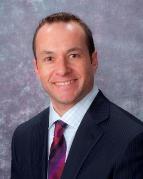This is the third in a series of guest blog posts, spotlighting how hospitals are engaging their patients to transform care delivery, using the Patient and Family Centered Care Methodology and Practice.
The Minimally Invasive Bariatric and General Surgery team at Magee-Womens Hospital of UPMC, performs over 1000 procedures annually. By adopting the six-step, Patient and Family Centered Care Methodology and Practice (PFCC M/P) in 2008, we have not only substantially improved the care experience for patient and families but also improved clinical outcomes and reduced costs.
Step 1: Define the Care Experience for Improvement
We initially defined this PFCC Care Experience as beginning when the patient expresses interest in exploring weight loss surgery and ending after the patient’s post-surgical follow-ups. Over time, as post-surgical follow-up has evolved and as non-surgical weight management programming has been developed, the end point has changed to encompass a wide variety of weight management programs which we discuss in further detail at the end of this post.
Step 2: Create The PFCC Guiding Council
The PFCC Guiding Council for the Bariatric Surgery and Weight-Management programs consists of:
Administrative Co-Champions: Chief Operating Officer and Practice Manager
Clinical Champions: Co-Directors of the program
PFCC Coordinator: Practice Manager
Step 3: Define the Current State through Shadowing
Shadowing was conducted when we first adopted the PFCC M/P in 2008 and we continue to employ Shadowing periodically so that we have an ongoing understanding of “the current state.” For our surgical programs, Shadowing segments include: the initial contact, the information session, the six-month session, clinic visits, inpatient and surgery, forms, and the Website. The beginning and end points vary, as might be expected, for the non-surgical weight management programs that we’ve launched in the last several years.
Step 4: Expand the PFCC Guiding Council into a PFCC Working Group
PFCC Working Groups are comprised of all those who impact the patient and family experience, either directly or indirectly. The Minimally Invasive Bariatric and General Surgery Working Group includes our PFCC Guiding Council members along with staff representing pharmacy, education, health management, dietitians, patient access, surgical services, imaging, lab and transport, as well as inpatient and outpatient clinicians.
Step 5: Create a Shared Vision by Writing the Ideal Story
The PFCC Working Group created a shared vision of the ideal care story in 2008 based on Shadowing observations, letters, surveys, patient and family input, and ideas provided by care givers (anyone in the health care setting who touches the patient and family). The ideal story was written in first person from the patient and family point of view and covered the time from initial contact through post-discharge clinic visits. Many aspects of the original ideal story have been achieved and new ideals stories have been written as re-Shadowing occurred and non-surgical weight management programs were developed. (The ideal story is too long for publication here but feel free to contact us for a copy.)
Step 6: Create PFCC Projects and Project Teams
Dozens of PFCC Projects have been completed over the past six years that include streamliningsix years that include streamlining processes, creating new patient materials and discharge packets, enhancing privacy (e.g., creating more private weighing and counseling areas), improving patient-facing forms, revising educational activities, and creating new training programs for staff. However, we would like to highlight two PFCC Projects that have taken on a life of their own: Reducing Readmissions after Weight Loss Surgery and the UPMC BodyChangers Program.
Reducing Readmissions
Analysis of the reasons for readmission for bariatric surgery patients identified a common thread of dehydration. Shadowing identified a need for additional patient and family education about hydration which we addressed by 1) adding hydration education to the pre-op and hospital discharge education process using further Shadowing to identify appropriate time points for each educational step, 2) developing a “quiz” to assess patient understanding regarding dehydration, 3) creating a Hydration Fact Sheet, and 4) educating staff on the “teach back” technique.
Shadowing was used throughout this project to identify the true current state and new current states, which in turn led to: 1) development of a post-discharge Bariatric Surgery Discharge Journal to log fluid intake, wound assessment, pain score, nausea assessment, signs/symptoms of dehydration, and fluid ml/ounce conversation table; 2) pilot distribution of “calibrated” water bottles post-discharge, and 3) post-discharge nursing calls to patients at home to answer questions and assess journal use.
Published results from this initiative included metrics for patient experience, clinical outcomes and cost outcomes – what we call the PFCC Trifecta:
|
Experience Metrics |
Clinical Metrics |
Cost Metrics |
|
|
Cost reductions for reducing readmissions are significant and include not only reimbursement but the ability for the patient and family to return to pre-surgical levels of activity and work sooner |
The improved patient education paradigm has increased: our focus on common complications, collaboration between inpatient and outpatient teams, collaboration between disciplines, and collaboration between all UPMC Bariatric Programs. This same model is currently being used to address other common complications of bariatric surgery including wound infection, pain, vitamin deficiency, weight gain, and deep vein thrombosis and pulmonary embolism.
UPMC BodyChangers Program
Based at Magee-Womens Hospital of UPMC and a joint venture of Life After Weight Loss and Bariatric Surgery, UPMC BodyChangers program addresses a need identified through the PFCC M/P to bring together a supportive community of like-minded individuals who want to be happy, healthy, energetic and fit by taking better care of themselves. Membership in UPMC BodyChangers includes:
- Educational seminars
- Cooking classes
- Exercise
- Destination education: Outings to local supermarkets, parks, trails, farmers’ markets, and other sites that promote healthy living
- Mind Over Body: Group sessions designed to help develop strategies for permanent weight control
- Body image/body contouring: Options for loose skin after weight loss
- Monthly e-newsletter: Healthy recipes, program updates, and motivational material
- Contests, competitions, incentives, prizes and freebies
- Networking opportunities
For more information, please feel free to contact Lisa Schraeder at schraederll@upmc.edu or Pamela Greenhouse at greenhousepk@upmc.edu.
Editor’s Note: The success of the PFCC methodology and practice in these UPMC programs is also evident in videos of patients who are participating in them.







